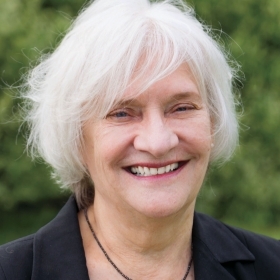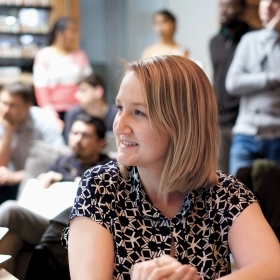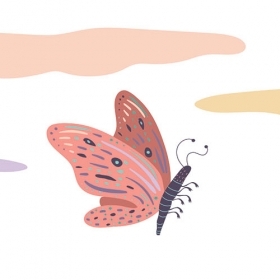Vivian Pinn ’62
In September, Vivian Pinn ’62—a retired physician, scientist, pathologist, administrator, and policymaker known as a champion of women’s health—was honored for her achievements by the University of Virginia, where she attended medical school.

Vivian Pinn ’64 and President Paula Johnson at the dedication of Pinn Hall in September.
Vivian Pinn’s mother protested, but doctors insisted her aches and pains were just arthritis. They never performed an X-ray, which would have revealed she had bone cancer. Early detection would have allowed for treatment that could have saved her life.
When Vivian, then 19 and a Wellesley premed sophomore, buried her 46-year-old mother, she pledged she would help women’s voices be heard in medicine. She would help improve care. She would make a difference.
It’s a mission she’s delivered on, and more. This September, Vivian—a retired physician, scientist, pathologist, administrator, and policymaker known as a champion of women’s health—was honored for her achievements by the University of Virginia, where she attended medical school. The school’s main medical education building will be renamed Pinn Hall. Vivian was the only woman and minority in her graduating medical school class.
“This is no doubt the most humbling and significant honor I’ll ever receive, and would never, ever, have expected,” says Vivian, who’s had a long, illustrious career of firsts.
She was the first African-American woman in the U.S. to chair an academic department of pathology, to give the university commencement address at UVA, and to be initiated into Modern Healthcare’s Hall of Fame. In 1991, she became the first director of the National Institutes of Health’s Office of Research on Women’s Health (ORWH), where she drove policies to include more women in clinical trials, set the national research agenda for women’s health, and promoted careers in science for women and minorities.
“We had to fight battles to show there was scientific merit and clinical significance to knowing if, and how, diseases or treatments may affect women and men differently,” she says. Battles that made a difference.
In Vivian’s 20 years at the helm of ORWH, clinical studies came to reflect a greater appreciation of sex and gender differences. Findings made their way into doctor’s offices, and women’s health has evolved to include more than just reproduction.
Vivian knew she wanted to be a doctor from an early age. She met her grandparents’ physician during house calls he made to their Virginia home, and she learned how to give her grandmother insulin shots. “Everyone always felt better after he left,” she says. “I liked that. And I was very fortunate. My parents never told me being a doctor was something I maybe couldn’t do. I never thought being black, being a woman, meant I couldn’t do it.”
She attended segregated schools in Lynchburg, Va. Her high-school class was the first ever of black students in Lynchburg to take the SATs. At Wellesley, she studied zoology, struggled through French—her Paris-born professor couldn’t understand her deep Southern accent—sang in the choir, and honed her writing skills.
“Wellesley students were so welcoming when I arrived,” says Vivian. “That first impression on that first day can make such a difference.”
It was a feeling she encountered again at UVA. She felt out of place on day one as the only woman and minority. But when it was time to choose lab partners, two men walked up to her and asked her to join them. “Sometimes, you have no idea what a small gesture of kindness can mean to someone else’s life,” she says. “That gesture allowed me to become a part of the group.”
Thirty-one years after Vivian buried her mother, she developed the same bone cancer. Vivian’s voice was heard. She saw an orthopedist who listened and promptly sent her for a bone scan. Doctors operated and saved her leg. “It was picked up early,” Vivian says, “and I survived.”


